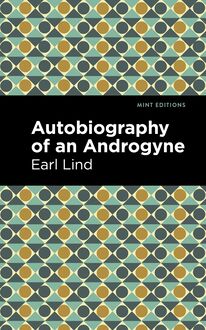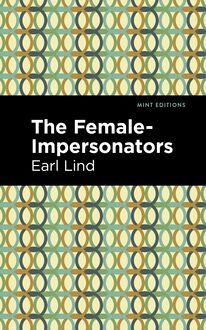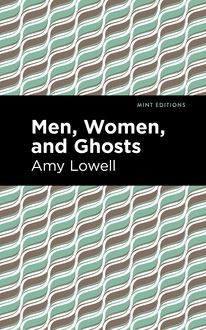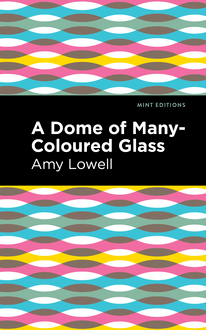-
 Univers
Univers
-
 Ebooks
Ebooks
-
 Livres audio
Livres audio
-
 Presse
Presse
-
 Podcasts
Podcasts
-
 BD
BD
-
 Documents
Documents
-
- Cours
- Révisions
- Ressources pédagogiques
- Sciences de l’éducation
- Manuels scolaires
- Langues
- Travaux de classe
- Annales de BEP
- Etudes supérieures
- Maternelle et primaire
- Fiches de lecture
- Orientation scolaire
- Méthodologie
- Corrigés de devoir
- Annales d’examens et concours
- Annales du bac
- Annales du brevet
- Rapports de stage
La lecture à portée de main

Vous pourrez modifier la taille du texte de cet ouvrage
Découvre YouScribe en t'inscrivant gratuitement
Je m'inscrisDécouvre YouScribe en t'inscrivant gratuitement
Je m'inscrisEn savoir plus
Vous pourrez modifier la taille du texte de cet ouvrage
En savoir plus

Description
A Marriage Below Zero (1889) is a novel by Alan Dale. Recognized as one of the first English language novels to openly depict homosexuality, the novel is a poignant study of the institution of marriage and the policing of desire in Victorian England. Rejected by contemporary critics as “unconventional” for its depiction of “monstrous forms of human voice,” A Marriage Below Zero would later earn Dale a reputation as a pioneering author whose exploration of homosexual romance, however tragic its consequences, set the stage for generations of artists to come. “He reddened slightly. ‘Captain Dillington always enjoys himself,’ he said quietly. ‘He is very happy in society." […] ‘How rarely you find two really sincere friends,’ I remarked, rather sentimentally. ‘The present time seems to be wonderfully unsuited to such a tie.’ ‘That is true’—very laconically. ‘I think there is nothing so beautiful as friendship,’ I went on, with persistence. ‘You have heard of Damon and Pythias,’ he said quickly, reading me like a book. I blushed deeply and was then furiously angry with myself. ‘I don't mind,’ he went on. ‘Make all the fun of us you like.’” Referring to the ancient Greek story of Damon and Pythias, whose names became synonymous with ideal male friendship, Elsie shows herself to be rather naïve regarding the nature of Arthur Ravener’s relationship with Captain Dillington. Despite this lack of clarity, Elsie Bouverie finds herself attracted to the handsome young man, and soon they are married. As she begins to grow suspicious about his sexual appetites, she hires a private investigator to follow the two friends, unwittingly welcoming tragedy into their lives. With a beautifully designed cover and professionally typeset manuscript, this edition of Alan Dale’s A Marriage Below Zero is a classic work of British literature reimagined for modern readers.
Sujets
Informations
| Publié par | Mint Editions |
| Date de parution | 23 avril 2021 |
| Nombre de lectures | 0 |
| EAN13 | 9781513295558 |
| Langue | English |
| Poids de l'ouvrage | 1 Mo |
Informations légales : prix de location à la page 0,0450€. Cette information est donnée uniquement à titre indicatif conformément à la législation en vigueur.
Extrait
A Marriage Below Zero
Alan Dale
A Marriage Below Zero was first published in 1889.
This edition published by Mint Editions 2021.
ISBN 9781513295404 | E-ISBN 9781513295558
Published by Mint Editions®
minteditionbooks.com
Publishing Director: Jennifer Newens
Design & Production: Rachel Lopez Metzger
Project Manager: Micaela Clark
Typesetting: Westchester Publishing Services
C ONTENTS I II III IV V VI VII VIII IX X XI XII XIII XIV XV XVI XVII XVIII XIX XX XXI XXII XXIII XXIV XXV
I
N o, I shall not weary you with a long account of my childhood, and all that sort of thing. When I read a story, I always skip the pages devoted to a description of the juvenile days of the hero or heroine. They are generally insufferably uninteresting, or interesting only to the writer, and I can find no excuse for selfishness, with such a weapon as a pen in one’s hand.
My mother was left a widow when I was a baby. There is a mournful sound about that piece of intelligence, which is absolutely deceptive. In reality it was a most satisfactory outcome of what I was always told was an extremely unhappy marriage. I heard that my father was a charming man, well read, intellectual, courteous and refined. His death was a happy release for both. Poor papa could not tolerate the shallowness of his spouse’s hopes and aspirations; while mamma looked upon her husband as an encumbrance, and an obstacle in the way of her social ambition. A husband is very often unnecessary when you are once in the swim of society. When he has given you the protection of his honorable name, and endowed you liberally with the goods of this world, why, the most delicate thing he can then do, is to cease reminding you of these facts, by taking himself off. At least that is the way a great many people look at the matter, I am told.
I was a year old when papa died. What I was there for, I cannot imagine. There was absolutely no reason for my existence. My mother despised children from the bottom of her heart—or, I might more aptly say, the place where her heart was supposed to be. But I thrived on my bottle. I grew disgracefully fat, and outrageously healthy, and it soon became apparent that there would be no difficulty in rearing me. The only person who could have felt any satisfaction at this was my nurse, who, without me to take care of, would have lost a good situation.
I have promised to say little about my childhood, and I will respect my promise.
I was packed off very young to an extremely aristocratic school, where for years dear mamma left me to myself, pursuing her own sweet course in the labyrinthine mazes of society. She paid my bills regularly, and they were pretty big ones, for nothing that could make me subsequently interesting among mamma’s dear friends, was neglected. I was to go into society very young. I think she wanted a little excitement, and imagined that she might get some entertainment from a nice, accomplished daughter. Everybody was aware of the fact that she had one, you see, and also cruelly remembered her real age; so why not use the girl to as much advantage as possible? So, I presume she reasoned.
I was “finished” in the most approved manner. I was taught to play the piano with the most provoking persistence, and made day and night hideous with my frenzied interpretations of things in variations, of pyrotechnical morceaux, and of drawing- room “selections.”
I sang songs with roulades which would have frightened Patti, and effective little chansons , with plenty of tra-la-la and tremulo about them. Creatures on whom the education I received would be likely to take effect, ought to be caged up, as dangerous to the community, in my opinion. I spoke villainous French, in order that I might vulgarly interlard my sentences with an occasional Gallic expression. I have done so above. You have Mme. Bobichon, instigated by mamma, to thank for it. A long haired, beery German was going the rounds of the drawing-rooms at this time (I ought to say salons , I suppose), and talking the gullible Londoners into the belief that he was a musical prodigy. I was taught German, I presume, in order that I might be able to tell him, in his own language, how much I adored him. I was very accomplished, in a word—desperately so. I will say this, however: I despised my education. I could see through its superficiality even then.
I enjoyed my school days thoroughly. I liked the society of the merry, laughing, giddy girls I met. Towards the end of my “finishing” period, I went home for a holiday, and the return to school was simply delightful. I dreaded the idea of leaving it for a home which I knew I should detest, and for a mother in whom I had not the faintest interest. At seventeen, however, I was taken into the bosom of my family, and the happiest period of my life came to an abrupt end.
I remained quietly at home for three months before I became that silliest of human beings, a blushing debutante . (She doesn’t blush long, poor thing.) I had one dear friend whom I regarded as a sister. Letty Bishop had left school two years before I emerged, so that when I was ready to burst upon the social world, she was already a full-fledged society girl.
I shall always remember the ball mamma gave to introduce me to the world. It was a great event for me, an absolute and utter revelation. I rejoiced at the idea of meeting my old school friends, and of resuming the pleasant relations we had enjoyed, without restriction. I was also particularly anxious to become acquainted with members of the male sex, of whom I had heard so much from my friend. I knew none, except John, the butler, who I cannot say impressed me very favorably.
I supposed that men were nice, sensible, jolly beings, immeasurably superior to girls, and with so many more privileges. They could marry whom and when they chose—I thought it, at least—and had unlimited power over creation in general. I hoped in my heart of hearts that I should soon be chosen, and that some young man would carry me away from mamma to a life which would be more endurable.
As I just said, that ball was an utter revelation to me. I was going to rush at the dear girls I knew, gushingly glad to meet them again after such a long separation, and burningly anxious to take them off to indulge in those nice long talks we had at school.
But when I saw them in my mother’s house I hardly recognized them. Could it be possible that these affected, fragile creations, were really the same girls who, only a few months ago, had surreptitiously purchased indigestible cakes, openly read sentimental novels, and enthusiastically sworn eternal friendship the one for the other? Why, they had no eyes for anything female now; all their attentions seemed turned in the direction of the men.
They greeted me with chilling politeness, and turned from me with ill-concealed haste to salute members of the other sex. Of course I had no doubt that they were as eager to meet men as I was. Still, I was not prepared to be treated in this way.
If the behavior of my feminine friends surprised me, I was completely astounded, before the evening was over, at that of the other sex. Why, it was impossible to talk sensibly to these men. They made silly speeches, and showered compliments upon me in a manner that simply caused me consternation and hurt my self respect. I could not imagine what they meant by being so personal. It would have only been after years of familiar intercourse that a girl would have ventured to talk to me as did these men, whom I had never seen before, and with the utmost assurance. It seemed to me that when strangers gave utterance to such ridiculous remarks, they were guilty of nothing less than impertinence.
When they were not unpleasantly self-satisfied, they were absurdly bashful. No girl is ever so contemptuously ill at ease as a bashful man, for whom I have never been able to feel any compassion.
One of our young hereditary legislators asked me to dance, and willing to put him at his ease, for his arms seemed to embarrass him, and his blushes amounted to a positive infirmity, I consented. He seemed to me to be a foolish young peacock, one of those men who Carlyle says attain their maximum of detestability at twenty-five, and ought to be put in a glass case until that period, after which they are supposed to improve. He danced well. I have since learned that most social peacocks do. The poetry of motion seems to accompany lack of brains. When once my lord had disposed of his arm around my waist, he was another being, oh, so much improved!
When the dance was over, he led me into the refreshment room, and brought me an ice. I needed it. I had danced boisterously because I was young enough to enjoy the exercise for itself alone. I could have passed a much pleasanter time, however, had my partner been my one friend and confidante , Letty Bishop, than I had done with the gawky arms of young my lord encircling my waist.
“What a delightful waltz,” sighed my lord, as he watched me greedily eating my ice. He was no longer embarrassed, my efforts had been successful.
“Yes,” I replied, “I love dancing, and I think you waltz nearly as well as even Miss Bishop, that pretty girl sitting over there.”
I pointed to a chair where Letty was reclining, surrounded by, I believe I counted seventeen young men. I thought I had paid him a great compliment. I had enjoyed my dance, and felt in a better humor. My lord did not seem at all elated, however. He became silent, and eyed me sentimentally
“Why don’t you have an ice?” I asked, presently, feeling annoyed at his stupidity. “This pineapple is very good—there are real pieces of fruit in it.”
“Ah, Miss Bouverie,” said he, “I am not in an ice humor.”
“Ha, Ha! what a good pun!” I laughed flippantly, wishing he would remove his eyes. “You ought to keep me in countenance, though. I always think people look so gluttonous eating by themselves.”
My lord took a chair and an ice at th
Attention
En entrant sur cette page, vous certifiez :
- 1. avoir atteint l'âge légal de majorité de votre pays de résidence.
- 2. avoir pris connaissance du caractère érotique de ce document.
- 3. vous engager à ne pas diffuser le contenu de ce document.
- 4. consulter ce document à titre purement personnel en n'impliquant aucune société ou organisme d'État.
- 5. vous engager à mettre en oeuvre tous les moyens existants à ce jour pour empêcher n'importe quel mineur d'accéder à ce document.
- 6. déclarer n'être choqué(e) par aucun type de sexualité.
YouScribe ne pourra pas être tenu responsable en cas de non-respect des points précédemment énumérés. Bonne lecture !
-
 Univers
Univers
-
 Ebooks
Ebooks
-
 Livres audio
Livres audio
-
 Presse
Presse
-
 Podcasts
Podcasts
-
 BD
BD
-
 Documents
Documents
-
Jeunesse
-
Littérature
-
Ressources professionnelles
-
Santé et bien-être
-
Savoirs
-
Education
-
Loisirs et hobbies
-
Art, musique et cinéma
-
Actualité et débat de société
-
Jeunesse
-
Littérature
-
Ressources professionnelles
-
Santé et bien-être
-
Savoirs
-
Education
-
Loisirs et hobbies
-
Art, musique et cinéma
-
Actualité et débat de société
-
Actualités
-
Lifestyle
-
Presse jeunesse
-
Presse professionnelle
-
Pratique
-
Presse sportive
-
Presse internationale
-
Culture & Médias
-
Action et Aventures
-
Science-fiction et Fantasy
-
Société
-
Jeunesse
-
Littérature
-
Ressources professionnelles
-
Santé et bien-être
-
Savoirs
-
Education
-
Loisirs et hobbies
-
Art, musique et cinéma
-
Actualité et débat de société
- Cours
- Révisions
- Ressources pédagogiques
- Sciences de l’éducation
- Manuels scolaires
- Langues
- Travaux de classe
- Annales de BEP
- Etudes supérieures
- Maternelle et primaire
- Fiches de lecture
- Orientation scolaire
- Méthodologie
- Corrigés de devoir
- Annales d’examens et concours
- Annales du bac
- Annales du brevet
- Rapports de stage











